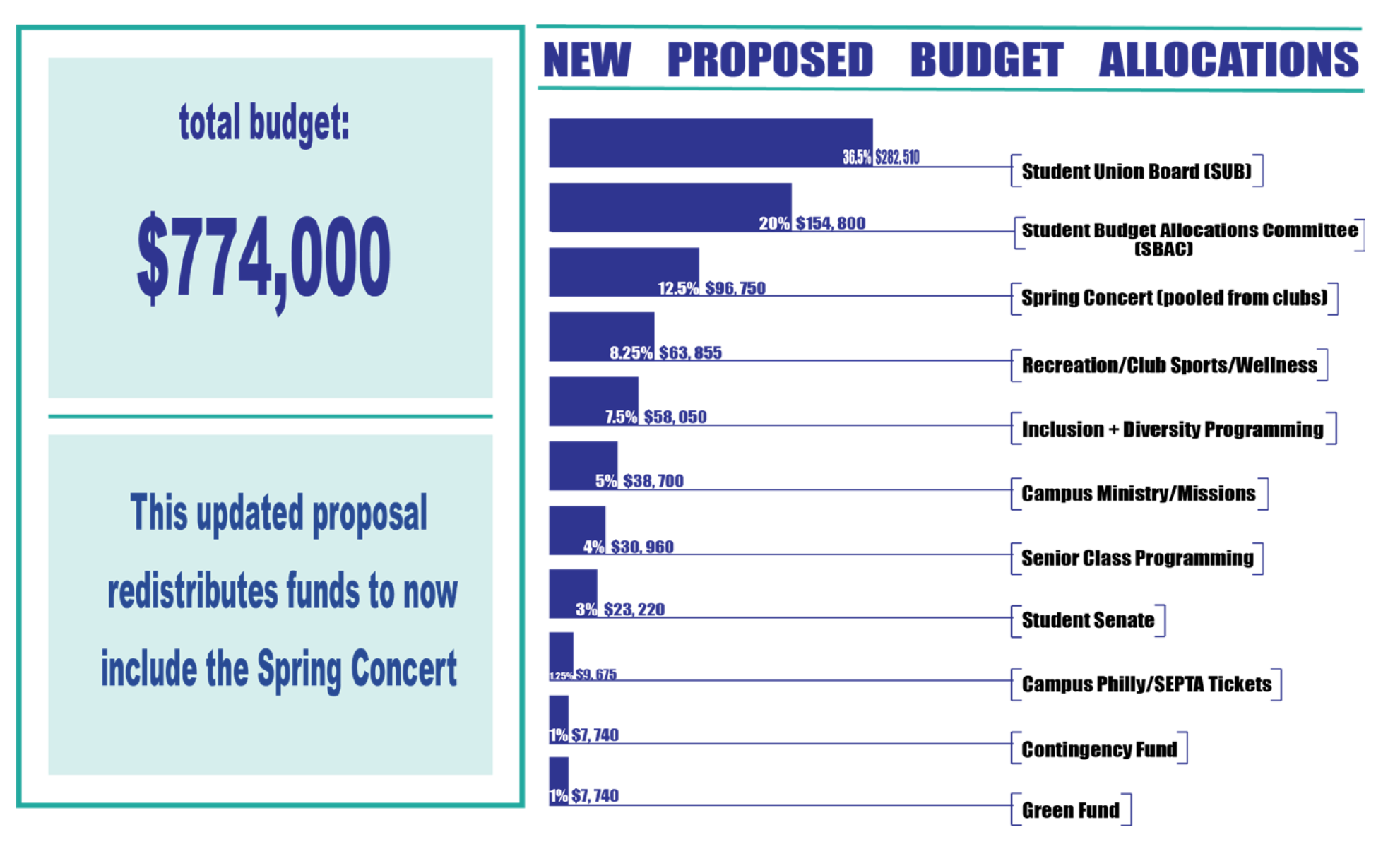Budget cuts affect student activity funding
University Student Senate leaders restored funding for the 2019 Spring Concert, which had been cancelled over the summer due to cuts to the Student Budget Allocations Committee (SBAC).
The SBAC, which receives allocations from the university, distributes funding to almost 90 student organizations across campus.
Student Senate President Jason D’Antonio ’19 said after he learned that the 2019 Spring Concert was cancelled, Student Senate sent a letter to the university asking for a meeting to explore restoration of the funds.
“We realized that students really enjoy the Spring Concert every year,” D’Antonio said. “But we also have an obligation to actually have student life on campus and that requires money.”
As a result of Student Senate’s efforts, the Spring Concert was funded after other organizations gave up a portion of their budgets. Each organization is now operating on a smaller budget than before.
D’Antonio said the plan for student-funded groups to sacrifice a portion of their funding to revive the concert was devised by Michael Efstration ’19, treasurer of Student Senate and John Jeffery, Ed.D., assistant vice president for Campus Life.
Currently, the proposed plan gives the Spring Concert $96,750, which is $10,972 more than what was spent for the 2018 Spring Concert.
“We need to stress that this is a temporary solution,” D’Antonio said. “I don’t think it’s a responsible way to keep operating, so the university is going to have to make some strategic financial decisions and really prioritize not only funding, but appropriate funding.”

Every year, St. Joe’s students are each required to pay a student activity fee of $180. Of that fee, $170 goes to student activities, while the remaining $10 goes to the Green Fund. The total of each student’s fee was $774,000 last fiscal year.
The SBAC is responsible for allocating its budget, which in the past has included student activity fee money plus a subsidy from the university. Although its activity is overseen by the University Student Senate, the SBAC is ultimately an independent entity run by students.
Last year, the university subsidy consisted of $108,810, but this year the subsidy was eliminated and the Spring Concert was allocated no funds.
The cut was made due to “historic underspending,” Cary Anderson, Ed.D., vice president and associate provost of Student Life, said in an email to The Hawk.
“When evaluating where to make budget reductions, trimming funds which are not consistently spent is a prudent way to proceed,” Anderson said.
About $102,773 was left unspent by student organizations at the end of the last fiscal year, Anderson said. Out of the organizations that had underspent, the Spring Concert and the Green Fund had the most money left over.
Last year, the Spring Concert was allocated $113,305. However, because opening performer Waka Flocka Flame canceled his set, the concert ended up costing only $85,778, leaving $27,527 unspent.
Efstration said most years the whole Spring Concert budget gets spent, making spring 2018 an exception.
Efstration also said it is important to remember that this funding is provided and used by students, not by the university.
“All this money being distributed, that’s going to the students,” Efstration said. “This is from the students, and it’s going directly to the students. Students are using this money for their betterment.”
The SBAC reform committee was founded to figure out how to end the moratorium on allocations. The committee, headed by Efstration, consists of the heads of the largest and most active student groups on campus, such as Women’s Leadership Initiative, Bridging the Gap and Delta Sigma Pi.
The committee aims to create new guidelines for SBAC in terms of determining how to allocate the funds they receive.
“The student-run SBAC reform committee is a great mechanism to create a sustainable plan moving forward,” Anderson said.
The committee will meet throughout September to discuss responsible ways to allocate funding, Efstration said. He added that while SBAC does currently have adequate funding, the issue the committee needs to discuss is how best to divide that money among the groups.
As a result, SBAC will be operating on an emergency fund until a plan can be finalized.
“We want student groups to have the money to do the program that they want and to allow for growth,” D’Antonio said. “We don’t want to keep running into the red every year.”














































